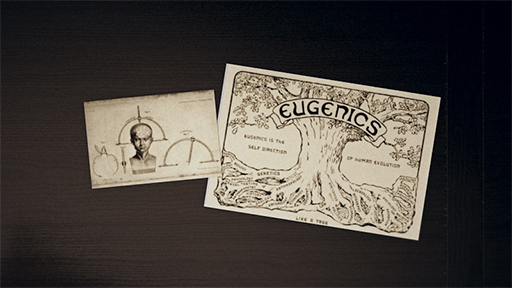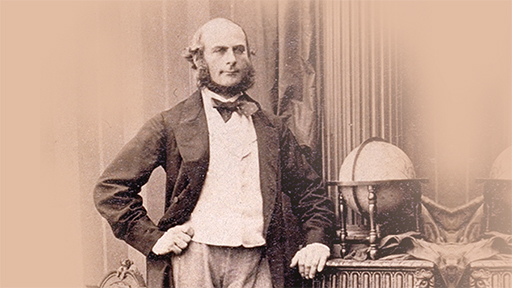The Meaning of Eugenics: Historical and Present-Day Discussions of Eugenics and Scientific Racism
Event Details
Eugenics and scientific racism are widely misunderstood despite their long histories. Studying and sequencing the human genome were supposed to help eliminate common misconceptions about the biological differences between humans. After all, we are 99.9% the same according to our DNA.
And yet, why do these misconceptions continue to persist, resulting in modern day discrimination and bias? We look to the history of science and medicine to help explain.
Since its inception, the National Human Genome Research Institute (NHGRI) has funded forward-thinking research on the historical study of eugenics and other misuses of genetics and genetic information. This includes the broader social, ethical and legal implications (ELSI) of genomics through NHGRI’s ELSI Research Program.
NHGRI has invited distinguished historians of science and medicine to speak at a two-day symposium that examines the history of eugenics and scientific racism and their complex legacies in the modern health sciences. In addition, the U.S. Holocaust Memorial Museum and the American Museum of Natural History will present their own efforts on these topics and offer free educational and scholarly materials.
NHGRI Historian Christopher Donohue, Ph.D., and Oxford Brookes University Professor Marius Turda, Ph.D., will lead the symposium.
-
Day one will provide historical overviews on the general history of eugenics and scientific racism, with relevance for public health, the history of human genetics, medical ethics and persons with disabilities.
-
Day two will focus on discussions of more recent manifestations of eugenics and scientific racism while underscoring the persistence of scientific and structural racism today in the United States.
All times Eastern
Recorded Video
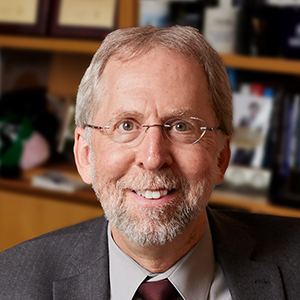
Dr. Eric Green is the director of the National Human Genome Research Institute (NHGRI) at the U.S. National Institutes of Health (NIH). He is the third NHGRI director, having been appointed by NIH director Dr. Francis Collins in 2009.
Dr. Green has been at the Institute for more than 25 years, during which he has had multiple key leadership roles. He served as the Institute’s scientific director for 7 years, chief of the NHGRI Genome Technology Branch for 13 years, and founding director of the NIH Intramural Sequencing Center for 12 years.
For just over two decades, Dr. Green directed an independent research program that included integral start-to-finish roles in the Human Genome Project and groundbreaking work on mapping, sequencing, and characterizing mammalian genomes.
Dr. Green earned his M.D. and Ph.D. degrees in 1987 from Washington University in St. Louis; coincidentally, the word “genomics” was coined in that same year. During his career, Dr. Green has authored and co-authored over 375 scientific publications.
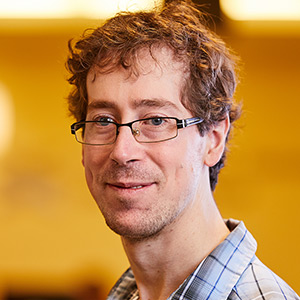
Christopher Donohue is the Historian of the National Human Genome Research Institute. He has edited or co-edited two journal collections since 2018. Two others, on Vitalism and the Contemporary Life Sciences with Charles Wolfe (for Springer Nature) and Perspectives on the Human Genome Project and Genomics with Alan Love (for Minnesota Studies in Philosophy of Science) are under review. A further volume for Patterns of Prejudice on “Slavdom”, genes and “race science”: between nation-building and the global racial imaginary is in preparation with Victoria Shmidt and Christian Promitzer. He is completing a book under contract for Central European University Press entitled "The Master Race in that Sense": Defenses of Eugenics and Sterilization after the Second World War.

@mariusturda is professor at Oxford Brookes University (UK) and Director of its Centre for Medical Humanities. His main research interests include history of eugenics, scientific racism, history of anthropology and history of medicine. He has published a number of books on the history of eugenics, including Modernism and Eugenics, Latin Eugenics in Comparative Perspective and The History of East-Central European Eugenics: Texts and Commentaries. He is the general editor of A Cultural History of Race, published in six volumes by Bloomsbury in 2021. He also produced a podcast series on the current relevance of eugenics and is the curator of two exhibitions on the history of eugenics.

Johanna Schoen is professor of History at Rutgers University with an affiliation at the Institute for Health. She is the author of two books: Choice and Coercion: Birth Control, Sterilization, and Abortion in Public Health and Welfare in the Twentieth Century (Chapel Hill: University of North Carolina Press, 2005) and Abortion After Roe (Chapel Hill: Univ. of North Carolina Press, 2015), which won the Welch Medal of the American Association for the History of Medicine. For the past decade, she has worked with abortion providers to preserve the history of legal abortion in the United States and to use historical analysis and insights to help preserve access to abortion care. Her current work explores the history of neonatology. In her spare time, Schoen volunteers at Memorial Sloan Kettering Cancer Center where she is a member of the Patient and Family Advisory Council, the Ethics Committee and the LGBTQ Committee.
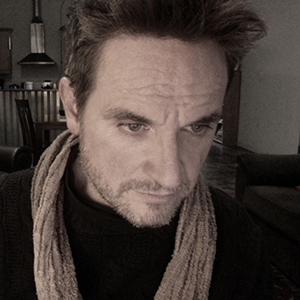
Michael Rembis is the Director of the Center for Disability Studies and an Associate Professor in the Department of History (at The State University of New York at Buffalo). He has authored or edited many books, articles and book chapters. His research interests include the history of institutionalization, mad people's history, the history of disability and the history of eugenics. He is currently working on a book entitled Writing Mad Lives in the Age of the Asylum.
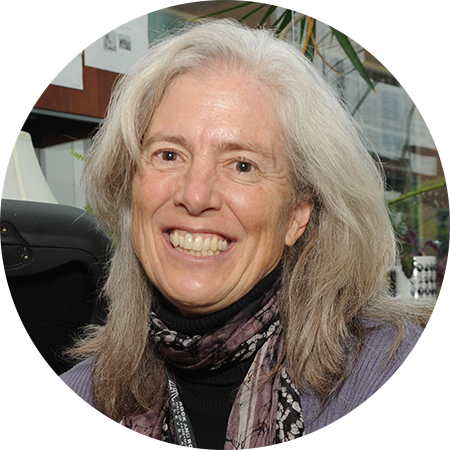
Joy Boyer has been a program official with the National Human Genome Research Institute’s (NHGRI) Ethical, Legal and Social Implications (ELSI) Research Program since 1996. As a program director in the NHGRI Division of Genomics and Society, Joy oversees a portfolio of research, training and career development grants related to the ethical, legal and social implications of genomic research. She coordinates the Centers of Excellence in ELSI Research (CEER) consortium and is the principal contact for ELSI Training grants (T32) program. She also participates in a variety of ELSI-related trans-NHGRI, trans-NIH and trans-HHS initiatives and programs, particularly initiatives focused on newborn and prenatal genetic screening.
Currently, Joy focuses on ELSI Research Program grants and initiatives related to Genomics and Sociocultural Structures and Values. These projects examine the foundational concepts and values that underlie and shape how individuals, families, communities and other social and cultural groups understand and use genomic information and technologies.

@rossb_oxford is a recent graduate of the Centre for Medical Humanities at Oxford Brookes University. His doctoral thesis, funded by the Wellcome Trust, examines changing concepts and practices relating to sex variations — intersexualities, transformations of sex and non-heteronormative sexual behaviors — derived from the biological sciences and their impact in Britain through the Edwardian and interwar eras. Ross has published several articles on queer themes in the history of biology and eugenics in leading history of science, technology and medicine journals, including Archives of Natural History, the Journal of the History of Medicine and Allied Sciences and the Zoological Journal of the Linnean Society. In June 2019 he acted as contributing editor for the first queer-themed edition of Viewpoint, the magazine of the British Society for the History of Science. He is a recipient of the Stearn Student Essay Prize, awarded by the Society for the History of Natural History.
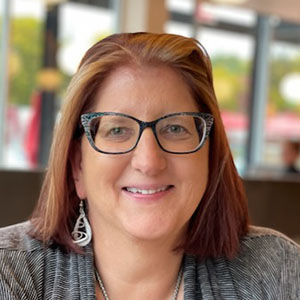
Alexandra Minna Stern, Ph.D., is the Carroll Smith-Rosenberg Collegiate Professor of American Culture, History and Women’s Studies and Professor of Obstetrics and Gynecology at the University of Michigan. Much of her research has focused on the uses and misuses of genetics in the United States and Latin America. She is the author of the award-winning Eugenic Nation: Faults and Frontiers of Better Breeding in Modern America, 2d. ed. by University of California Press in 2015. She also is author of Telling Genes: The Story of Genetic Counseling in America (Johns Hopkins University Press, 2012), a Choice 2013 Outstanding Academic Title in Health Sciences. Her most recent book, Proud Boys and the White Ethnostate: How the Alt-Right is Warping the American Imagination (Beacon Press, 2019) applies the lenses of historical analysis, feminist studies and critical race studies to deconstruct the core ideas of the far right and white nationalism in the United States. Stern is the principal investigator of the Sterilization and Social Justice Lab, which uses mixed methods to study patterns and experiences of eugenic sterilization in the20th-century United States; this research has informed policy efforts to provide redress to survivors of compulsory sterilization. Stern has held numerous grants including from the National Endowment for the Humanities, National Institutes of Health and the Robert Wood Johnson Foundation.
The University of Michigan is located on the traditional territory of the Anishinaabe people. In 1817, the Ojibwe, Odawa, and Bodewadami Nations made the largest single land transfer to the University of Michigan. This was offered ceremonially as a gift through the Treaty at the Foot of the Rapids so that their children could be educated. Through these words of acknowledgment, we recognize this land was acquired through dispossession, and we seek to reaffirm and renew contemporary and ancestral ties to the land and manifold indigenous contributions to the University.

Natalie Lira is an interdisciplinary scholar and Assistant Professor of in the Department of Latina/Latino Studies at the University of Illinois at Urbana Champaign. Her research interests include the politics of reproduction, histories of medicine and the ways that struggles for racial and reproductive justice intersect. She is an expert on eugenic sterilization, member of the Sterilization and Social Justice Lab and author of the book Laboratory of Deficiency: Sterilization and Confinement in California, 1900-1950s (University of California Press; forthcoming winter 2021).

Rana Hogarth is an associate professor of history at the University of Illinois Urbana-Champaign. Her research focuses on the medical and scientific constructions of race during the era of slavery and beyond. Her first book, Medicalizing Blackness: Making Racial Difference in the Atlantic World, 1780-1840, was published by the University of North Carolina Press in 2017. She is currently at work on her second book, which examines how myths about mixed-race people that emerged from slave societies in the Southern United States and the Caribbean informed eugenic era discourse. This project specifically takes up the question of how Black people, and mixed race people with Black and White ancestry, became targeted by eugenicists for study in the early decades of the 20th century. It aims to show how legacies of slavery and its aftermath became essential to advancing the eugenicist project of measuring racial intermixture and racial fitness.

Vence L. Bonham, Jr. is acting deputy director of the National Human Genome Research Institute and a member of the senior leadership team for the institute. Mr. Bonham provides leadership for the institute’s health equity and workforce diversity programs and works in partnership across NIH to promote the mission of the institute.
He received his Bachelor of Arts from James Madison College at Michigan State University and his Juris Doctor degree from the Moritz College of Law at Ohio State University. Mr. Bonham was a fellow in the American Association of Medical Colleges Health Services Research Fellowship Program. Mr. Bonham was a tenured faculty member at Michigan State University with appointments in the Colleges of Medicine and Law. He is currently an associate investigator in the National Human Genome Research Institute (NHGRI) within the Division of Intramural Research's Social and Behavioral Research Branch. He leads the Health Disparities Unit, which investigates the equitable integration of new genomic knowledge and precision medicine into clinical settings.
His research focuses primarily on the social implications of new genomic knowledge, particularly in communities of color. He studies how genomics influences the use of the constructs of race and ethnicity in biomedical research and clinical care, and the role of genomics in exacerbating or ameliorating health inequities. The Bonham group also studies sickle cell disease, a condition that will be impacted by emerging curative genomic technologies, but has faced significant health disparities both in the United States and globally.

Rob DeSalle works at the American Museum of Natural History in molecular systematics, microbial evolution and genomics. His current research concerns the development of bioinformatic tools to handle large-scale genomics problems using phylogenetic systematic approaches from bacteria to humans. He has curated several exhibitions and a permanent hall at the museum and has an interest in the museum’s eugenic past since the late 1990s. He is a co-author with Ian Tattersall of four books on human evolution and race – Race: Debunking a Scientific Myth (2014; Texas A&M Press), Troublesome Science (2019; Columbia University Press), The Accidental Homo Sapiens (2020; Pegasus) and Understanding Race (in press; Cambridge University Press).

Dr. Mark Alexander studied history and Holocaust studies at the University of Vermont before attaining his doctorate in history at George Washington University. His research interests include collaboration and postwar justice, and his dissertation explores how a group of influential Belarusian Nazi collaborators escaped justice and participated in US efforts to undermine the Soviet Union during the Cold War. In his role on the museum staff, he writes new articles for the online Holocaust Encyclopedia Understanding Race (Cambridge University Press) and develops new collections of primary sources for Experiencing History.

Dr. Katharine White is a program officer in the Jack, Joseph and Morton Mandel Center for Advanced Holocaust Studies at the United States Holocaust Memorial Museum. As part of the Campus Outreach division, she organizes the annual Jack and Anita Hess Faculty Seminar and the Curt C. and Else Silberman Faculty Seminar, as well as the Campus Outreach Lecture Program. She holds a doctorate in modern German history from George Washington University, and her research interests include German youth culture in transnational perspective; human rights, environment and peace activism; and the antecedents to and long-term impacts of Nazism and the Holocaust. Katharine’s work has been published in Central European History and Humanity Journal. Her most recent article is “Germany and Colonia Dignidad: Colonial Entanglement, Medical Humanitarianism, and Human Rights Abuses in Chile” in Humanity Journal, 12, 1 (Spring 2021): 20-38.

Dr. Leah Wolfson is the Rosalyn Unger Director of Campus Outreach at the Jack, Joseph and Morton Mandel Center for Advanced Holocaust Studies at the USHMM. She received her doctorate in comparative literature with an emphasis in Jewish studies from Emory University. She has also served as the visiting assistant professor in the Jewish Studies Program at the College of Charleston (Charleston, SC) where she taught courses in Holocaust literature. At the museum, Dr. Wolfson leads the team responsible for outreach activities on more than 25 campuses annually. Dr. Wolfson is the author of the book, Jewish Responses to Persecution, 1933-1946, published by Rowman and Littlefield in the fall of 2015. She also serves as one of two project leads for the Mandel Center’s first digital humanities effort, “Experiencing History: Holocaust Sources in Context”. Her article examining the USC Shoah Visual History Foundation Archive, “Is there anything else you would like to add: Visual Testimony Encounters the Lyric” appeared in the Winter 2008 edition of the South Atlantic Review. Her book chapter, “They were killing us and we were singing: the role of song in Claude Lanzmann’s Shoah outtakes,” will appear in the volume, Inventing According to the Truth: Claude Lanzmann’s Shoah and its Outtakes (Wayne State University Press) in 2020.
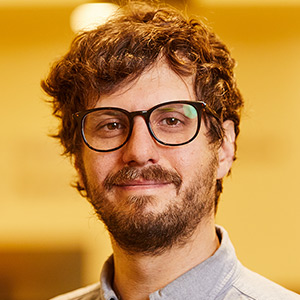
Zachary Utz, M.A., is the archivist and public historian at the National Human Genome Research Institute (NHGRI). Zachary completed his graduate work at the University of Maryland, Baltimore County where he focused on digital public history. At NHGRI, Zachary has played an important role in helping the Institute address the history and legacies of eugenics in the fields of genetics and genomics. He has helped develop educational resources as well as conducted original research on the U.S. eugenicist Robert Cook, which he recently presented on at the Anti-Eugenics Project’s virtual convening “Dismantling Eugenics: Legacies, Reckonings, Futures.”
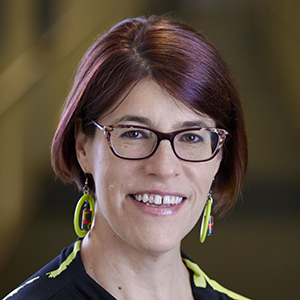
Sara Chandros Hull, Ph.D., who has worked at the NIH since 1999, is currently on detail with the NIH Tribal Health Research Office to support the development of policies, procedures and training to enhance the ethical conduct of tribal research. In addition, Dr. Hull holds joint appointments as director of the Bioethics Core of the National Human Genome Research Institute (NHGRI); Chair of the NIH Intramural Institutional Review Board; and faculty in the Department of Bioethics, where her research and capacity building interests focus primarily on the intersections between research ethics and genomic research. Dr. Hull received her undergraduate degree in molecular cell biology and genetics from Brandeis University and earned a doctorate from the Johns Hopkins School of Hygiene and Public Health/Program in Law, Ethics and Health in 1999. Her graduate training focused on social science research methods to conduct empirical research in bioethics and public health policy. During her graduate studies, Dr. Hull also worked on the staff of President Clinton's Advisory Committee on Human Radiation Experiments.
Last updated: July 19, 2023

